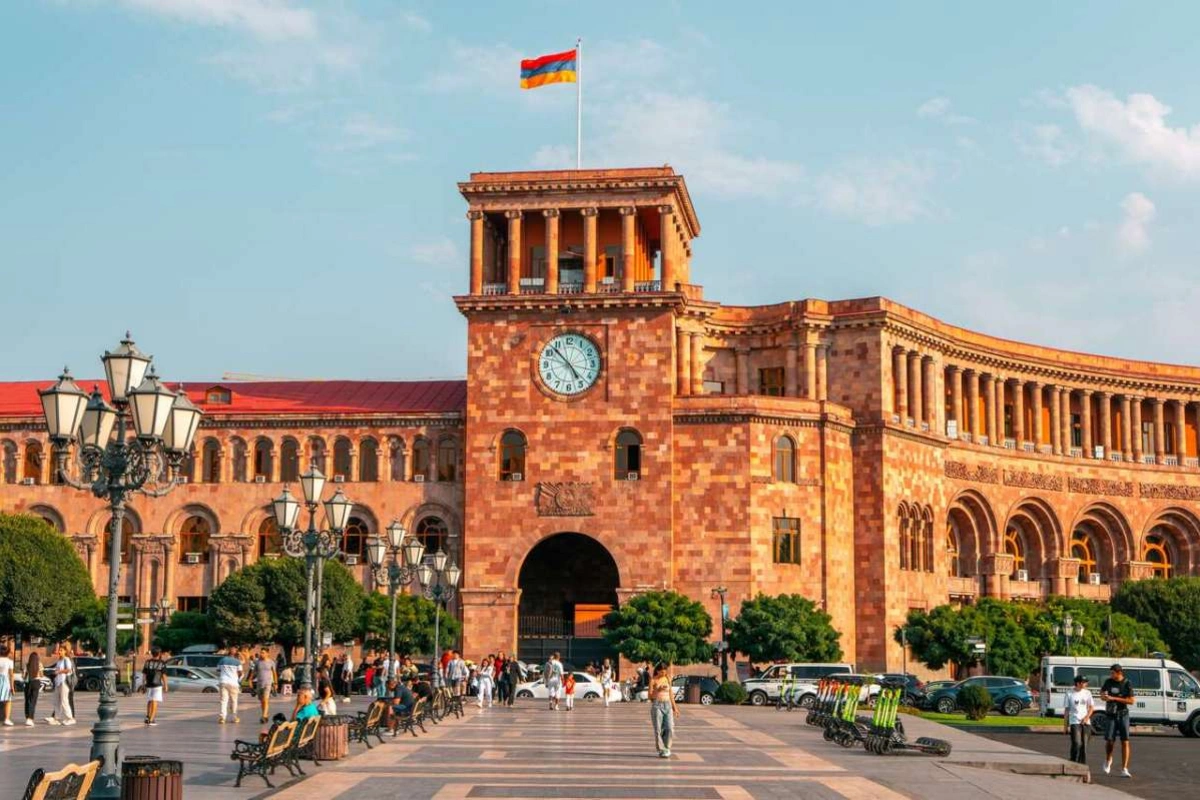
France, which actively supports Armenia, leveraged Francophonie networks to lobby for Armenia’s COP17 bid, raising questions about the extent to which ecological standards were considered in the decision
Armenia's selection as the host country for the UN Biodiversity Conference, COP17, sparked a wave of pride in Armenian media and on social networks, where this event is presented as recognition of the country’s environmental achievements. However, many questions remain as to whether this choice was truly driven by Armenia's ecological accomplishments or by the political interests of its Western allies.
As Baku prepares to host the more significant COP29 international event, the decision to award COP17 to Armenia may reflect an attempt by France and other EU countries to strengthen their influence in the region. France, which actively supports Armenia, leveraged Francophonie networks to lobby for Armenia’s COP17 bid, raising questions about the extent to which ecological standards were considered in the decision. Francophonie, to which Armenia belongs, has often demonstrated its ability to promote its members’ interests, frequently prioritizing political considerations over objective criteria.
The situation is further complicated by increasing tensions with Azerbaijan, which continues to attract major international events that reinforce its position on the global stage. While Azerbaijan is successfully implementing ambitious projects in urban development, technology, and Islamic cooperation, Armenia is focused on environmental issues, which, at first glance, seem significant. However, for the EU, this may be more a means of maintaining influence in the South Caucasus through a "niche" agenda, particularly since COP17 in Yerevan carries much less weight globally than the upcoming COP29 in Baku.
The decision to award COP17 to Armenia can also be seen as a political maneuver aimed at creating a semblance of balance between Armenia and Azerbaijan. Azerbaijan, supported by leading nations, attracts events focused on global issues and sustainable development. COP29, which will be held in Baku, will serve as a platform for discussing global climate initiatives and will draw the attention of world leaders. In contrast, COP17 in Armenia has a more localized focus, concentrating solely on biodiversity—a theme that, when compared with COP29’s broader scope, is clearly less impactful. For Armenia, COP17 appears more as a political stage than a real ecological contribution.
Analyzing this situation reveals that EU countries, especially France, used the opportunity to hold COP17 in Armenia as a way to support their geopolitical strategy. Armenia, serving as something of a Western outpost in the region, participates in an environmental event that likely holds more political significance than ecological value. As Azerbaijan’s ties with Turkey strengthen and its regional influence grows, Western countries are using events like COP17 to create a counterbalance. France, in particular, is interested in strengthening its position in the South Caucasus through Armenia.
For the international community, Armenia’s selection as the host of COP17 can be viewed as part of a “divide and conquer” strategy. Holding prominent international events in South Caucasus countries effectively divides them into different camps, increasing competition for status and resources and fostering a sense of disunity on the international stage. In this dynamic, Armenia, by securing COP17, becomes a symbolic rival to Azerbaijan, which benefits the EU and Francophonie as they aim to weaken regional integration and strengthen their position by manipulating public opinion. COP17 has, in essence, become a tool of political maneuvering rather than an event genuinely aimed at addressing environmental challenges.
Armenian media claims that COP17 will make Armenia a center of ecological awareness and lead to real improvements in biodiversity. However, despite the bold statements and praise in the Armenian press, the actual environmental benefits of holding this event remain in doubt. COP17 in Armenia serves more as a means of advancing Western interests in the region than as a genuine contribution to solving environmental issues.
While Armenian media is actively promoting COP17 as an important international event comparable to COP29 in Baku, the international community sees this less as an ecological initiative and more as a political maneuver. COP29, set to be held in Azerbaijan, will be a platform for discussing major climate initiatives that could genuinely influence global environmental priorities. Meanwhile, COP17 will remain a local event addressing a narrow topic of biodiversity, unlikely to drive meaningful changes on the international agenda.
COP17 in Yerevan is less a step toward promoting the environmental agenda and more a political tool employed by the EU and France to entrench their influence in the South Caucasus. By hosting this event, Armenia is symbolically positioned in opposition to Azerbaijan, allowing the West to create an illusion of balance in the region.
Share on social media
